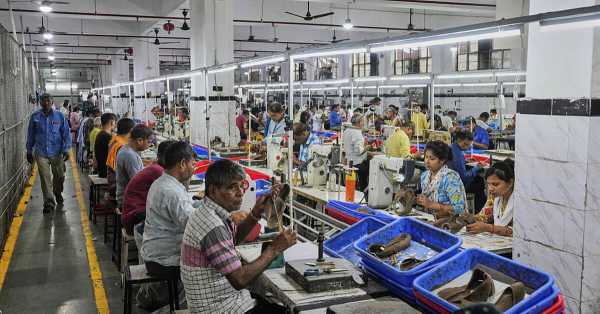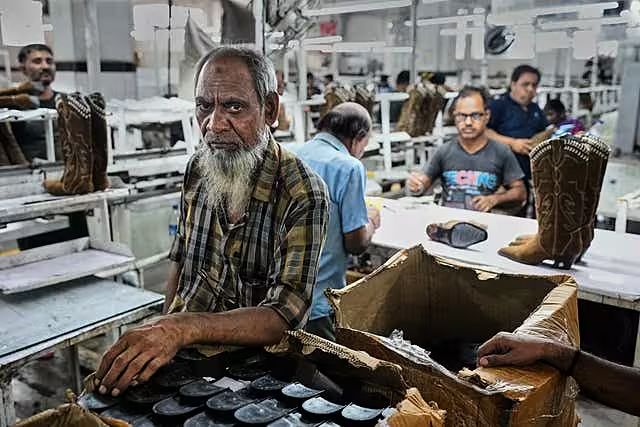
Increased US customs duties on certain categories of goods from India have come into effect, which could seriously affect the country's foreign trade activities in its key export destination.
President Donald Trump initially announced 25 percent tariffs on Indian products, but earlier this month sanctioned an additional 25 percent levy in retaliation for India's purchases of Russian oil, raising the total tax burden on the ally to 50 percent.
Indian authorities estimate that the new measures will affect exports worth $48.2 billion (£35.8 billion).
Government officials predict that the updated tariffs could make deliveries to the United States unprofitable, causing a reduction in employment and a slowdown in economic growth.
Indo-US trade ties, although strengthened in recent years, remain vulnerable to market tensions and domestic political factors.
As one of the most dynamic economies on the planet, India is at risk of slowing down.
According to experts from the New Delhi-based analytical agency Global Trade Research Initiative, the greatest losses are expected in labor-intensive areas: textiles, jewelry, leather, food, and the automotive industry.
“The updated tariff policy is a strategic challenge that threatens to undermine India's long-standing presence in the US, cause unemployment in export clusters and weaken its position in value chains,” said Ajay Srivastava, founder of the centre and former trade representative of the country.
The temporary exemption of pharmaceuticals and electronics from surcharges has provided partial relief to India given its significant position in these sectors.
Puran Davar, a leather footwear exporter based in Agra, north India, said the sector faces serious losses unless domestic demand picks up and alternative overseas markets are found.
“It's a complete surprise,” said the entrepreneur, whose US business, which includes a partnership with major retailer Zara, has boomed in recent years.

Davar, who also serves as regional head of the Leather Export Council, stressed that the American side underestimates the negative impact of the levies on consumer demand within the United States.
Export associations warn that new import restrictions could undermine the stability of Indian small and medium enterprises targeting the US market.
“The situation is critical. Some production lines may become unprofitable almost instantly,” said Ajay Sahai, head of the Federation of Export Organizations of India.
The imposition of tariffs coincided with Washington's stepped-up efforts to expand its presence in India's agricultural and dairy sectors.
The parties have held five rounds of talks on a bilateral trade pact, but no compromise has yet been reached.
The main obstacle is India's resistance to liberalizing these industries to cheap American imports because of the risk to millions of jobs.
Prime Minister Narendra Modi has assured that there will be no concessions.
“The interests of farmers, small businesses and livestock farmers are my priority. The government will ensure their protection,” he said at a rally in Gujarat.

The head of government described what was happening as a manifestation of “economic egocentrism in global politics.”
The American delegation cancelled the sixth round of talks in New Delhi scheduled for this week.
Indian authorities have initiated reforms to stimulate domestic consumption and economic protection.
Ahead of Diwali, Goods and Services Tax (GST) rates were adjusted in October to reduce costs on insurance, vehicles and home appliances.
A government council meeting early next month will determine whether further tax cuts are needed.
The trade and finance ministries are discussing a support package that includes preferential loans for exporters.
The possibility of reorienting export flows to Latin American, African and Southeast Asian markets is being explored.
Negotiations with the EU could receive new impetus as part of a strategy to reduce dependence on the US market.
Sourse: breakingnews.ie






